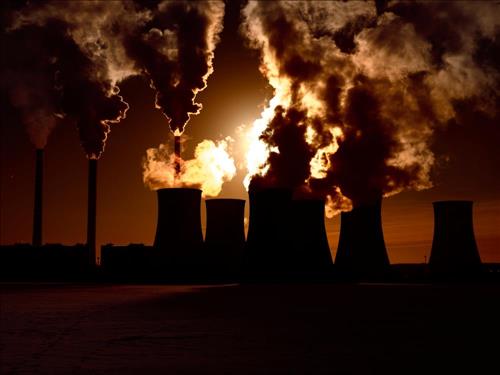
(MENAFN – The Conversation) Capitalism has often been identified as the underlying cause of theclimate crisis . A leading voice on the subject is Naomi Klein, one of the climate movements most influential thinkers, whose seminal book onclimate changewas subtitled Capitalism vs. the Climate. She is one of many voices identifying capitalism as the cause of climate change.
Often central within the capitalism versus the climate framing is the idea that the heart of capitalist ideology – free market fundamentalism – has fuelled the climate crisis. But this line of argument often glosses over the fact that energy markets are not free from government intervention. In fact, the fossil fuel industry is deeply and increasingly reliant on government support to survive.
Ina forthcoming book chapter , I detail case studies from the world’s worst climate polluting countries. I show that the fossil fuel industry depends on an egregious amount of government support, which makes the public foot the bill for a harmful – and increasingly uncompetitive – industry.
Polluters market
In my chapter, I show that governments the world over favour fossil fuel interests throughpublic financing ,financial subsidies , andbailouts . In addition, the fossil fuel industry is helped bycorrupt governance systems . Together this forms what I call a system of fossil fuel welfare and protectionism.
To hide this reality, the fossil fuel industry has invested ina massive public relationsscheme (read: propaganda campaign) to paint itself as the defender of the free market. In the US, the fossil fuel industry has even,quite successfully , duped Evangelicals into associating the fossil fuel industry with free markets, and free markets with God’s will. Thus, attacks on the fossil fuel industry become attacks on God’s will. But if God’s will was really aligned with the free market, then the fossil fuel industry would be doing the devil’s work.
Take South Africa, for example, the biggest carbon polluter on the African continent. It used to be home to the world’sfastest growing renewable energy sector , but government intervention to protect polluting coal interests set back these advances. Under President Cyril Ramaphosa the government is now taking steps to allowsmall amountsof new renewable energy into the market. But government actions continue to slowthe immense potentialSouth Africa has for a low-cost, renewable energy revolution.
Arecent studyreported that South Africa subsidises coal by R56,6 billion per year – propping up a polluting industry with taxpayer money. South Africa continues to subsidise coal despite studies showing that renewable energy was helpingto prevent energy blackouts , wassaving South Africa billions on energyand that a renewable energy future is the country’slowest costenergy pathway.
On the other side of the Atlantic, a recent International Monetary Fund (IMF) study showed that the US, the world’s largest historic greenhouse gas emitter, givesten times more to fossil fuel subsidies than it does to education . Without such subsidies half of future oil production in the USwould be unprofitable .
As for coal, even the Wall Street Journal admits that US coalsimply can’t compete on a level playing field , and is losing out despite its major subsidies.Studies revealthat without regulation to shield them from market forces, about half of the coal plants in the US would be going bankrupt.
The fossil fuel industry is increasingly relying on the heavy hand of the government to protect fossil fuels from competition. Subsidies and protective policies shield fossil fuels from the reality that renewable energy has become the cheapest energy sourceworldwide.

